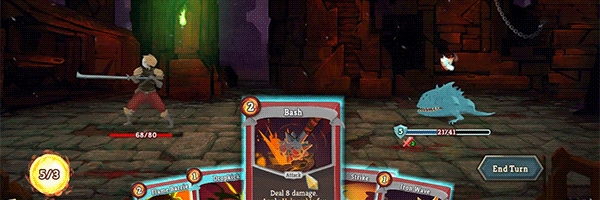So early last year, it was already clear that we were getting a lot of extremely good games (and going on the number of February release dates announced at E3, 2019 looks like it's going to be similar). This year has started with fewer tent-pole releases (most notably, God of War) and far less focus on RPGs overflowing with content (which gave early 2017 a very specific feel) but there certainly have been some great games like Mashinky building up in Early Access and BattleTech getting a full release. Into the Breach is another game from earlier in the year that I've not written about yet but is very nice. There's something in the strategy/tactical water this year and it tastes like roguelike-likes. The genres have always been somewhat mingled, what with 4X games (or even solitaire games) being about semi-random runs which build their own story through the mechanics (and that's where Mashinky fits in), but much of 2018's output (They Are Billions entered Early Access at the very tail of 2017, I'm counting it) feels explicitly part of the current roguelike-like wave. Sometimes it's unclear which side of the line games are aiming for (Frostpunk is probably going for more scenario-based rather than the endless replayability of rogue).
Slay the Spire, currently in Early Access with plans for a release sometime this Summer, is a deckbuilder game. If you're not familiar with the genre, it's the assembling of a card deck from CCGs (like draft format) without that pesky monetisation of the acquiring of the cards required. You fight battles (here entirely PvE against clockwork enemies who have predictable patterns and compositions rather than branching AI) and work out how everything synergises with the simple core mechanics, but without having to buy hundreds of dollars of cardboard or, in our terrible digital future, virtual cardboard.
In order to ensure the game doesn't devolve into simply selecting the best deck from the current meta discussions and throwing it at the enemies, the format here is solidly a roguelike-like. Semi-randomised runs where the expectation is to eventually be weakened to the point of death and have to restart with a new random seed from the very beginning. As you work through a run, you'll be offered various card choices (as well as handed out limited potions and rule modifiers in the form of relics) from which to build your deck. One of the key things here is that card removal is actually hard (not often offered and rarely for free) so building a deck is very much about what you don't select. The only times I've seen cards you can't turn down is used to good effect in a curses category. Negative outcomes can add cards to your deck you don't want and as they are hard to remove, they will stay with you and mess with your flow. Slay the Spire is very clean in how everything works like this - full of smart decisions to keep the game compact without feeling stale.
Unfortunately also absent from this, compared to one of my previous favourites - FTL, is much story development. There are a pool of random events with flavour text but not to the same extent as it felt like FTL assembled a story. Even the Magic: the Gathering standard of flavour text for cards is missing here with only artwork and name working beyond mechanics as narrative. But what you do get from a standard run is 50 events, mainly fights, as you scale up through three main bosses and a few elites (with your exact path somewhat flexible, so you can pick when to fight an elite or rest as a campsite to replenish your health). As with all enemies in the game, each individual boss is clockwork so part of the learning curve is internalising their moves, but there is some variety in which boss you encounter (so the final boss is randomly selected from a pool of three and you can see who it is during the final third of the run to help build your deck towards beating them).
So far the Early Access is going well, with now three different characters (changing the starting relic, some core mechanics, and card availability) all feeling sufficiently different. Beyond the standard roguelike-like, there is some permanent unlocking of extra cards/relics that will randomly appear in the game to expand your options over time as well as a difficulty staircase called Ascension that adds new difficulty modifiers once you've grokked the mechanics and how to steer yourself towards a synergistic deck despite the RNG offering you new cards. Spelunky fans will recognise the Daily Challenge, here adding three daily modifiers to a daily seed and then offering a leaderboard scoring how far you got and what feats you achieved during your first run. There is also now an Endless mode, although I am yet to even try it.
Currently the buzz is positive and the sections of the game with 'coming soon' written over it are almost all swapped out for new features (sitting at Weekly Patch 30 at time of writing) so a final release is probably on track. I do hope the game becomes a living game after 1.0 with plenty of balance tweaks but also a slowly expanding enemy and elite selection (as they are clockwork and so it can feel like you're eventually solving them for almost all competent decks you may have when you encounter them). Expansions for new cards, new bosses, and even a new character also seem like a good long-term future for the game. For now, not even at 1.0, it's an extremely easy way to burn through hours of play and feel like you're getting a deep appreciation for the various mechanics and synergies available.

No comments:
Post a Comment